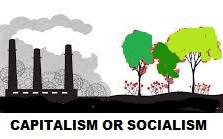The richest 1% of the world’s people (those earning more than $172,000 a year) produce 15% of the world’s carbon emissions: twice the combined impact of the poorest 50%. On average, they emit over 70 tonnes of carbon dioxide per person every year, 30 times more than we can each afford to release if we’re not to exceed 1.5C of global heating. While the emissions of the world’s middle classes are expected to fall sharply over the next decade, thanks to the general decarbonisation of our economies, the amount produced by the richest will scarcely decline at all: in other words, they’ll be responsible for an even greater share of total CO2. Becoming good global citizens would mean cutting their carbon consumption by an average of 97%.
Even if 90% of the population produced no carbon at all, the anticipated emissions of the richest 10% (those earning over $55,000) across the next nine years would use almost the entire global budget. The disparity in environmental impact mirrors a nation’s inequality. No wonder the prosperous people of the wealthy nations are so keen to seek to shift the blame to China, or on to other people’s birthrates: sometimes it seems they will try anything before attending to their own impacts.
A recent analysis of the lifestyles of 20 billionaires found that each produced an average of over 8,000 tonnes of carbon dioxide: 3,500 times their fair share in a world committed to no more than 1.5C of heating. The major causes are their jets and yachts. A superyacht alone, kept on permanent standby, as some billionaires’ boats are, generates around 7,000 tonnes of CO2 a year.
Flying accounts for most of the greenhouse gas emissions of the super-rich, which is why the wealthiest 1% generate roughly half the world’s aviation emissions.
Bill Gates has an estimated footprint 3,000 times bigger than the good global citizen’s, largely as a result of his collection of jets and helicopters. He claims to “buy green aviation fuel”, but there is no such thing. Biofuels for jets, if widely deployed, would trigger an environmental catastrophe, as so much plant material is required to power a single flight. This means that crops or plantations must displace either food production or wild ecosystems. No other “green” aviation fuels are currently available.


No comments:
Post a Comment